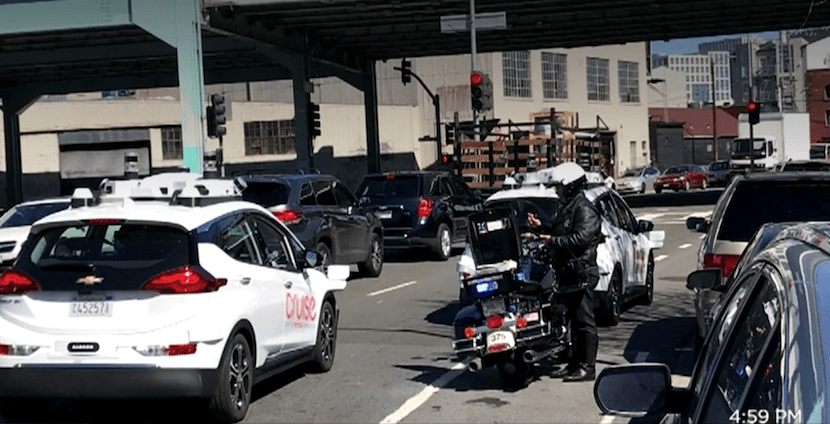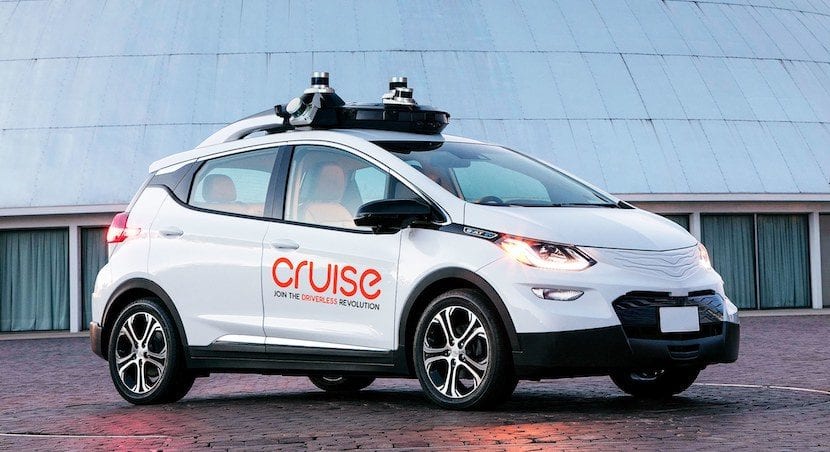
It seems that this month of March is not the best month for autonomous cars. Just over a week ago, there was the first fatal hit by an Uber company vehicle. A few days ago, a vehicle from the Tesla company he was involved in another fatal accident which is also being investigated.
Last week in San Francisco, a police officer stopped an autonomous vehicle belonging to the Cruise company of General Motors for stopping very close to a pedestrian crossing a zebra crossing. According to the autonomous vehicles division of General Motors, the data that the vehicle collects at all times during its journeys shows that it stopped at a safe distance.

According to Kevin O'Connor, who was driving just behind the autonomous vehicle, it was stopped shortly after accelerating when the pedestrians had already crossed and as we can see in the image that heads this article, the policeman issued him the corresponding fine for the offense he had allegedly committed, since Cruise affirms that it was not thus and that his vehicles prioritize the movement of pedestrians and their safety while they are crossing.
According to Cruise, «Safety is our priority in all the test drives we are conducting. California law requires that the vehicle yield to pedestrians, allowing them to proceed without haste or haste, without fear of interfering in the area that is intended for that purpose. Our data indicate that it is what really happened ».
What is clear is that we will never know who is telling the truth. The only thing missing was that after the two fatal accidents with autonomous vehicles, now this type of vehicle also intends to skip the crosswalks. The person who goes at all times in this type of vehicle confirms the manufacturer's version, as expected.